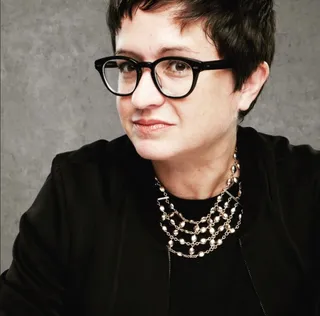The Sea Cure
A slower pace, a conversation with Rosa Jackson, and a beautiful bookbinding atelier in Old Nice.
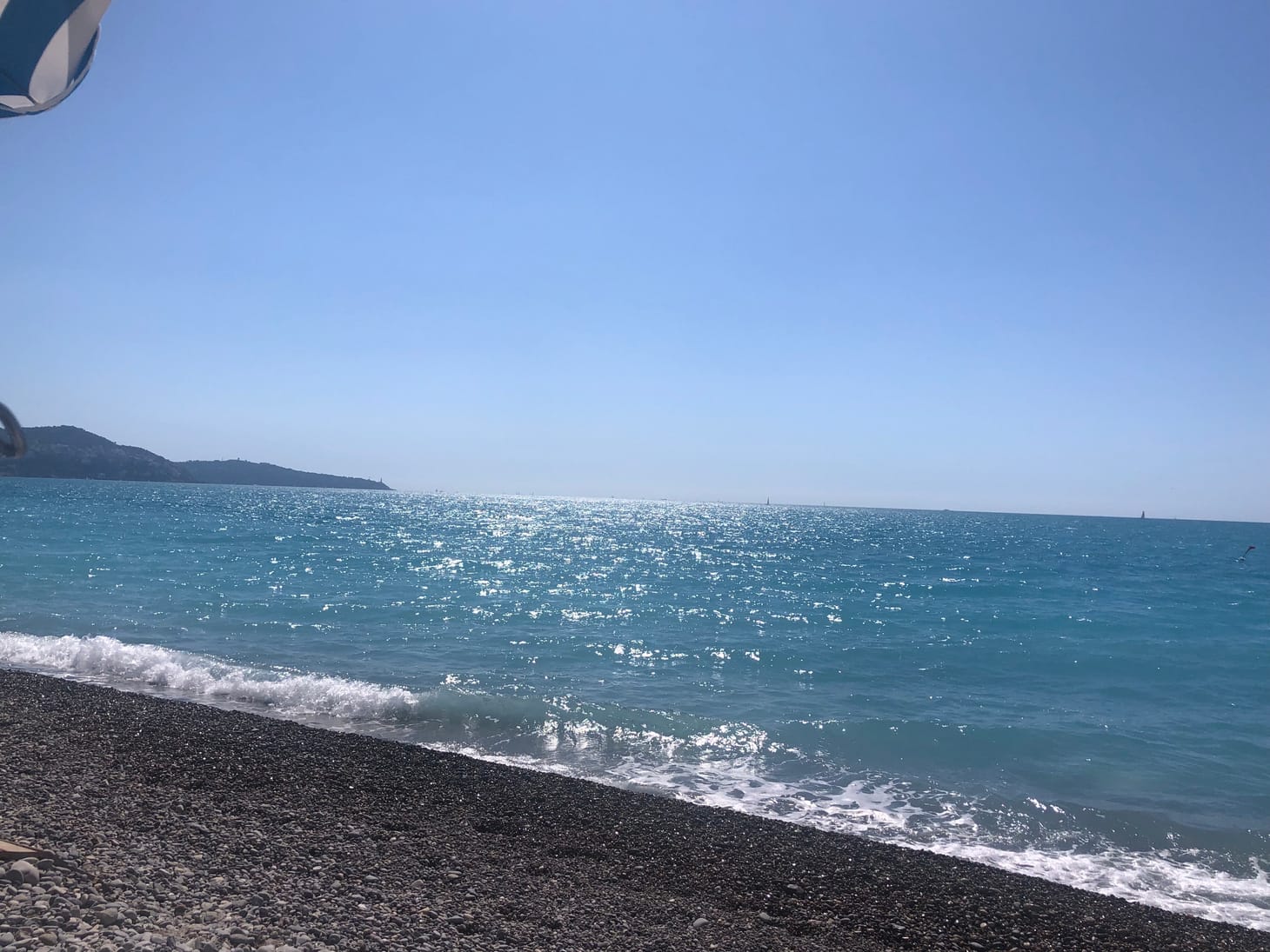
After returning from a long-planned trip to Southern France, I can say that Sara and Gerald Murphy were really onto something. The sea air, the light, the breezes and slower pace are so good for the mind and spirit. I am grateful for the time I could spend there with my other half for the past two weeks.
Did you enjoy learning about the Americans who descended upon this delightful corner of the world about a century ago? I'd love to hear about what resonated with you from the past two dispatches I've sent, and to get your feedback about how I've been doing overall with these weekly inbox invasions. What are you enjoying? What would you like to see more of? How can I be helpful to you? Really. I want to hear from you. So reach out!
A travelogue of sorts is coming, once I get my feet back under me and my internal clock back on Eastern Standard Time. This week though, I am thrilled to share this interview I did with food writer, cookbook author and cooking instructor Rosa Jackson, whose wonderful cookbook Niçoise: Market-Inspired Cooking from France's Sunniest City was just published to great acclaim. I had hoped to bring you an account of learning from and cooking with this lovely woman this past week, but circumstances beyond anyone's control prevented that. These things happen and it is a-ok. I know I will be back in her part of the world, and when I am, I will cook with her then. I can't wait!
In the meantime, please enjoy this really interesting conversation we had about how she fell in love with France and its food at a very young age, and then proceeded to devote her life to sharing that love with other people like me.
Interview with Rosa Jackson
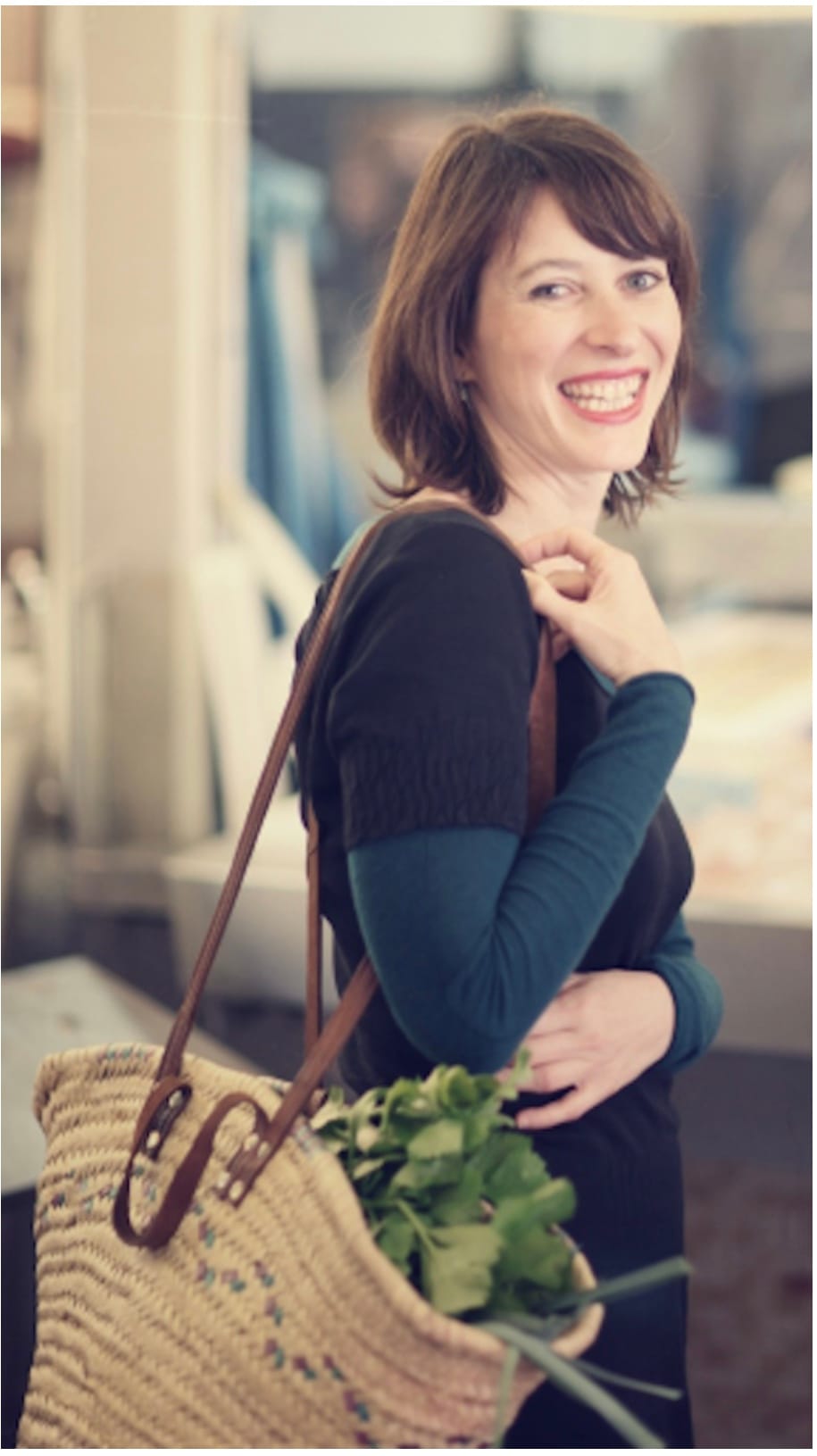
When you were four years old, your family lived in Paris for about a year. What was it about that first taste of a coffee éclair that set you down the path of food writing and Francophilia?
I think the first coffee éclair I tasted seemed very sophisticated and it was something that I could not have tasted in Canada. The éclair itself is the starter pastry for French children and so it was bit of a rite of passage in that way. The texture of the custard was really wonderful with the crunch of the choux pastry. Then the glaze, which is kind of sticky and has a really nice texture as well, was so memorable for me. I still love eclairs.
After moving back to Canada, in what ways did this year abroad shape your understanding of the world and inform the choices you made throughout your youth and, ultimately, your career path?
After that first year that I spent in France, I came back to Canada and was interested in food in a way that probably a lot of kids my age were not. I wanted to make cakes and reproduce some of the flavors I had tasted in France. Culturally, friendships are quite different in France compared to Canada, but that was something I noticed more after my second year in Paris when I was twelve. As a pre-teenager in France, I felt our conversations were more deep. In Canada, which sounds cliched, we talked a lot about hockey and boys...After my second year in Paris, I was also more interested in cooking than I had been before, because I tasted more things and went to my first bistros and wanted to explore cooking, and not just making cakes and pastry.
When you came back to France in 1995, what did it take to get Paris Market Tours up and running? I’m sort of surprised that no one had thought of doing this before you, because the market culture is so rich and interesting. What was the spark that ignited this new venture? How receptive were the sellers to what you were doing?
1995 was a long time ago! Things were very different then. There was no internet, so advertising that kind of business was a quite a different matter than it is today. When I first started in market tours, I was advertising it through a French entertainment magazine called Pariscope that had a few English language pages at the back. I would simply put the time that I was meeting people at the metro stop to do the market tour and people would show up or they wouldn’t. We didn’t have cell phones to know whether somebody was going be there or not. So, it was not something everyone was doing and so the other tour guides thought I was quite crazy for taking people around the market. They were like “You’re charging people to walk around the market?” They didn’t really get it. It was definitely a new thing. It seems hard to believe now, but that’s really how it was. It was something that happened spontaneously for me because I loved markets so much, that it was something I wanted to share with people and that hasn’t changed.
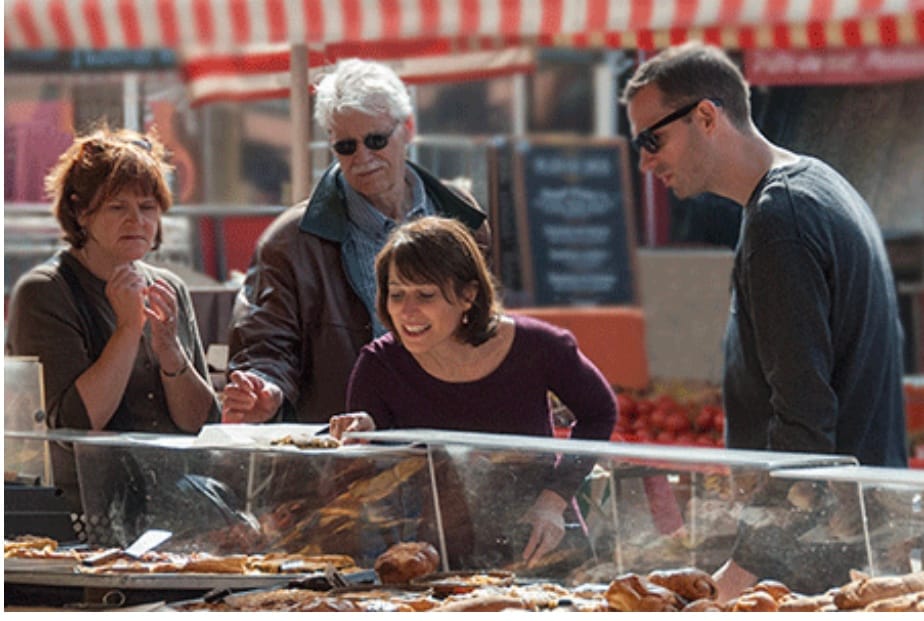
You dreamed of combining these tours with cooking classes. What was it about Nice that made it such an interesting spot for you to launch your school, Les Petits Farcis? Are there any food mentors there that showed you the ropes of the cuisine?
I was coming to Nice for vacations and I had already started doing market tours in Paris and cooking classes with my friend Paule Caillat, who had a company called Promenades Gourmandes. And when I was coming to Nice, I was really struck by the light which has always attracted a lot of artists, and the colorful produce of the markets. Everything seemed more vivid than it did in Paris. I also discovered local dishes that were impossible to find anywhere but Nice, things like pissaladière (caramelized onion flatbread), tourte de blettes sucrée (sweet chard pie) and other dishes, Niçoise dishes, that might have similar cousins in Italy, but were made in a unique way in Nice. So, I became interested in exploring the similarities and differences between Niçoise and French and Italian food and how Nice fits into the Mediterranean in general. When I first moved to Nice there was a chef named Franck Cerutti who worked closely with Alain Ducasse at Le Louis XV restaurant in Monaco, and he took me around the market and introduced me to a lot of farmers. That really gave me my start of being a legitimate food person in Nice. Also, I had a neighbor named Marie who loved to share local recipes with me. So those two people really helped me get my start in learning about Niçoise cuisine.
What’s a typical market/cooking class like at Les Petits Farcis?
A typical market tour and cooking class begins at 9:30 a.m., usually at the Cours Saleya, but I also do the Liberation market once a week. I talk about the history of Nice and the cuisine, and how the cuisine really fits into the history of Nice, which is so tied to Italy. And then we tour the market and pick up ingredients for our class that day. Often, I don’t really decide the menu in advance, or at least too far in advance. We might spontaneously pick up things that we see. We go back to the kitchen at 11:00 a.m., after stopping at the wine shop and buying some cheese on the way. And then it’s two hours of cooking in the kitchen, followed by a meal. It’s family-style cooking where we’re all pitching in. It’s not each person individually preparing their meal because that’s not the way people do it in Nice. I’m trying to recreate a real experience of preparing a meal like the Niçoise people would.
How did your experience lead to your new book Niçoise? I mean, Mediterranean cooking is really having a moment, now, isn’t it? What was it like for you to bring all your knowledge together in the book?
Writing a cookbook is something I’ve wanted to do for a long time. I’ve probably been thinking about it for the past ten years and students have been asking me when I was going to write a cookbook. But it was really the pandemic that gave me the opportunity to sit down and spend time on it, because it is very time-consuming to prepare a proposal for an agent and to rework the proposal. Then once you have a publisher, there’s all the steps of organizing the cookbook and writing it. It was about a yearlong process, even though I had many of the recipes that had been honed and perfected over the years in my cooking classes. I was afraid of leaving anything out, and it’s quite a big book as you can see. And that’s because I wanted to include as much as possible because I’ve met so many interesting people over the years, and discovered so many dishes that I love and ingredients that I love that I was trying to fit it all in.
What can we look forward to from you next?
I am thinking about a second cookbook, but for now the subject is not quite defined. I want to continue to develop my cooking classes. I’m not sure what’s happening with my kitchen at the moment, so who knows? It might lead to something new and different. Maybe a new location. It’s too soon to say. I won’t stop teaching cooking. That’s something that I love and that I live for. And I won’t stop writing. So those two things I’ll always be combining in some way.
A big thank you to Rosa for sharing her story. For more information about her and her work, visit petitsfarcis.com or rosajackson.com.
Writing prompt: Rosa Jackson shares her passion for markets and Niçoise cuisine with visitors from all over the world. Is there something you're passionate about that you would share with others? If so what is it? When did you fall in love with thing and why? How do you think you could share that passion with others in a way that could make them fall in love it too?
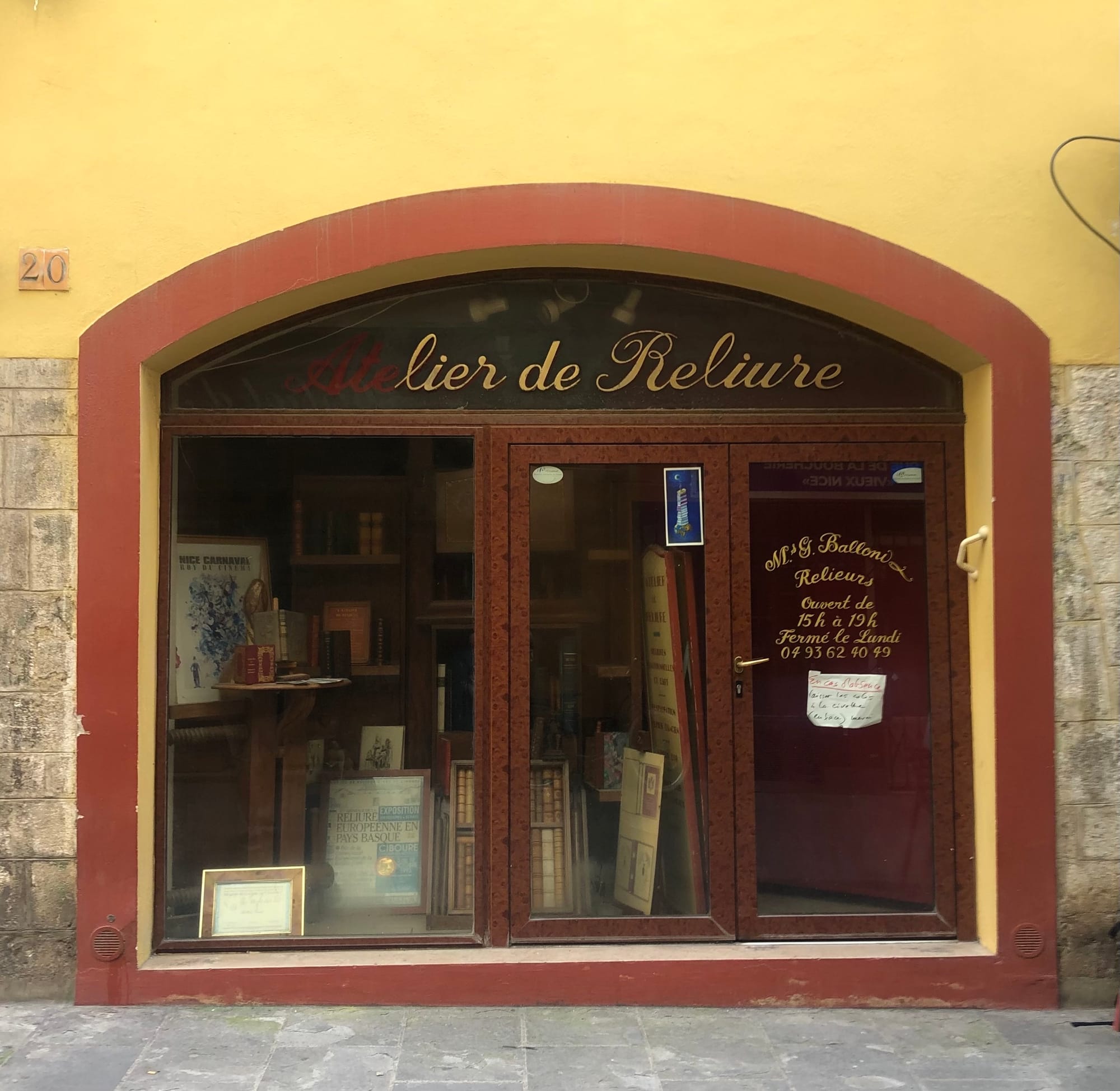
Super-dorky to admit but I looked into bookbinding classes that I might be able to take on this trip. I didn't find any that would seem to teach me something new, so I went about my merry business until I accidentally stumbled upon this beautiful old bookbinding atelier this past Sunday afternoon. The sign on the door said it was only closed on Mondays, but after trying a couple of times, it was clear that the sign needed to be updated. No one was there. Days after gazing into the shop like a little French street urchin, I can say I'm still daydreaming about the place, and romanticizing about what it might be like to have one of my own.
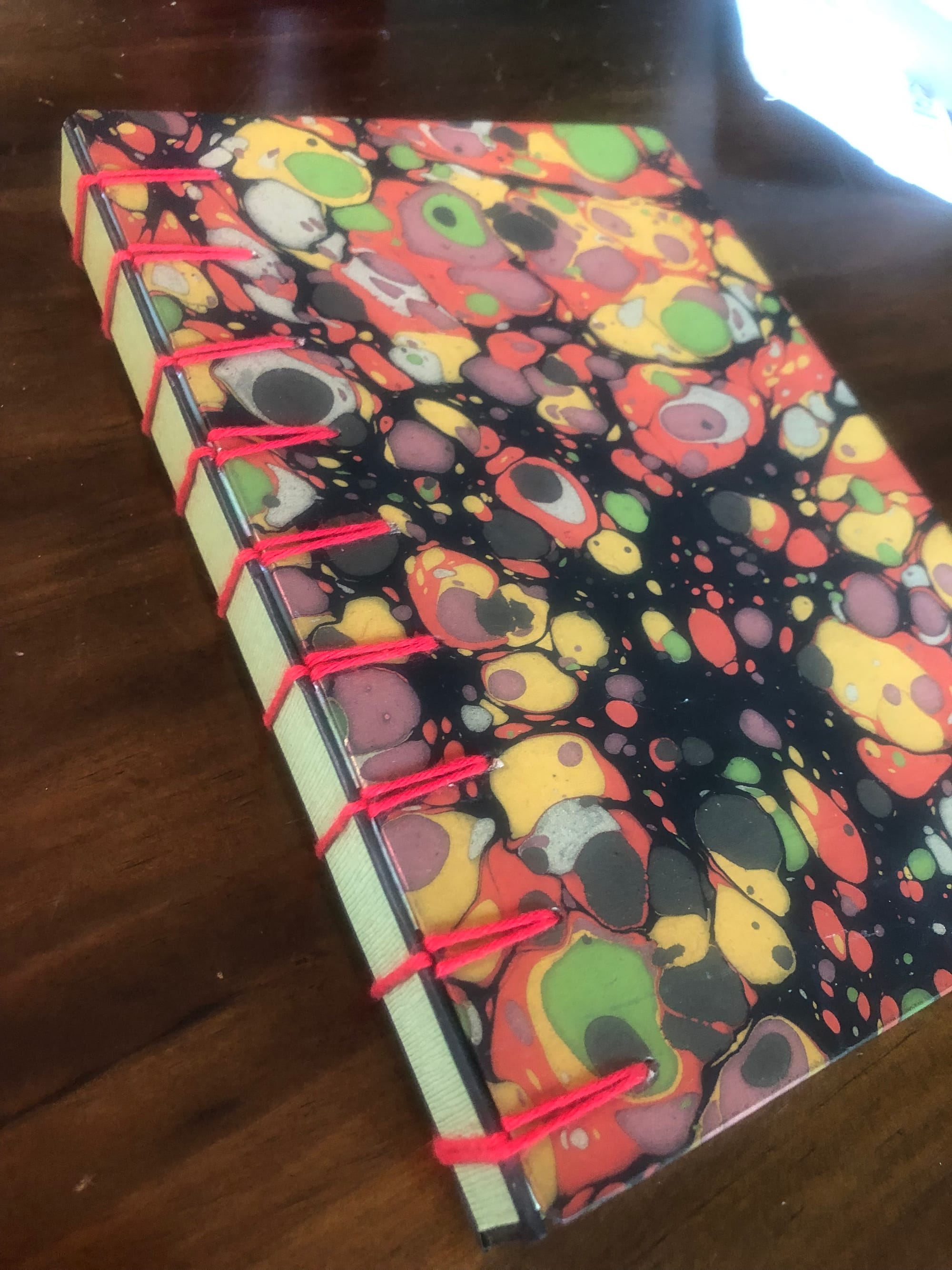
Endnotes
What I'm reading: Life with Picasso by Francoise Gilot. Gilot was an accomplished painter in her own right who had a long and rocky relationship with Pablo Picasso that began a few years after Gerald and Sara Murphy left France. She was the only one of his partners to leave him, and from what I've read so far, it's easy to understand why. Picasso attempted three lawsuits to prevent publication of this excellent, evocative book, and 80 prominent intellectuals and artists signed a petition calling for it to be banned. Although the book sold more than one million copies and was translated into 16 languages, Gilot described this period of her life as a "civil death." Now the Picasso Museum in Paris is exhibiting her work in a room of its own to demonstrate that she was so much more than a mere companion. She was a dynamic artist who painted until her death at age 101, and very much her own woman.
What I'm looking forward to: The 17th-annual "Beyond the Dot" exhibition, presented by the SCAD Atlanta School of Foundation studies. My kiddo has a couple of pieces in this juried show, so I'm very proud and can't wait to see what happens this afternoon when they announce the prize winners.
What I need in my life: Last week, the French postal service released postage stamps honoring the baguette, which it called "the bread of our daily lives, the symbol of our gastronomy, the jewel of our culture." Why do I want these stamps so badly? First of all, the description that continues at the previous link is truly seductive. It ignites something in me that is a mixture of delight, confusion, and hunger...perhaps even carb-lust. Was it the way I felt after my first kiss? Who can say? Second, these stamps are scratch and sniff, and when I found that out, my inner eighties kid just squealed with glee. So of course I'm going to order some, just for posterity.
Where I hope you'll donate this week: The National Endowment for the Arts is an independent federal agency that is the largest funder of the arts and arts education in communities nationwide and a catalyst of public and private support for the arts. By advancing equitable opportunities for arts participation and practice, the NEA fosters and sustains an environment in which the arts benefit everyone in the United States. And the arts really are good for you in so many ways, so please if you can, make a donation and when you're done, go see an exhibit, a musical performance, a play, or something of that sort and see what it does for your heart and soul.
Next week: All the sporting events in the world seem to be descending upon France this summer. How is the country managing that? Plus, the following two conversations: 1. The one I had at a train station with a woman who reminded me of Agnes Varda and who said the country was a disaster (among other things), and 2. the conversation I had with an Uber driver about how the country has the best system in the world, "and it works." Well, which is it? It's probably both. Stay tuned for that and more next week, here at P.B.'s Playhouse.
Paige Bowers Newsletter
Join the newsletter to receive the latest updates in your inbox.

